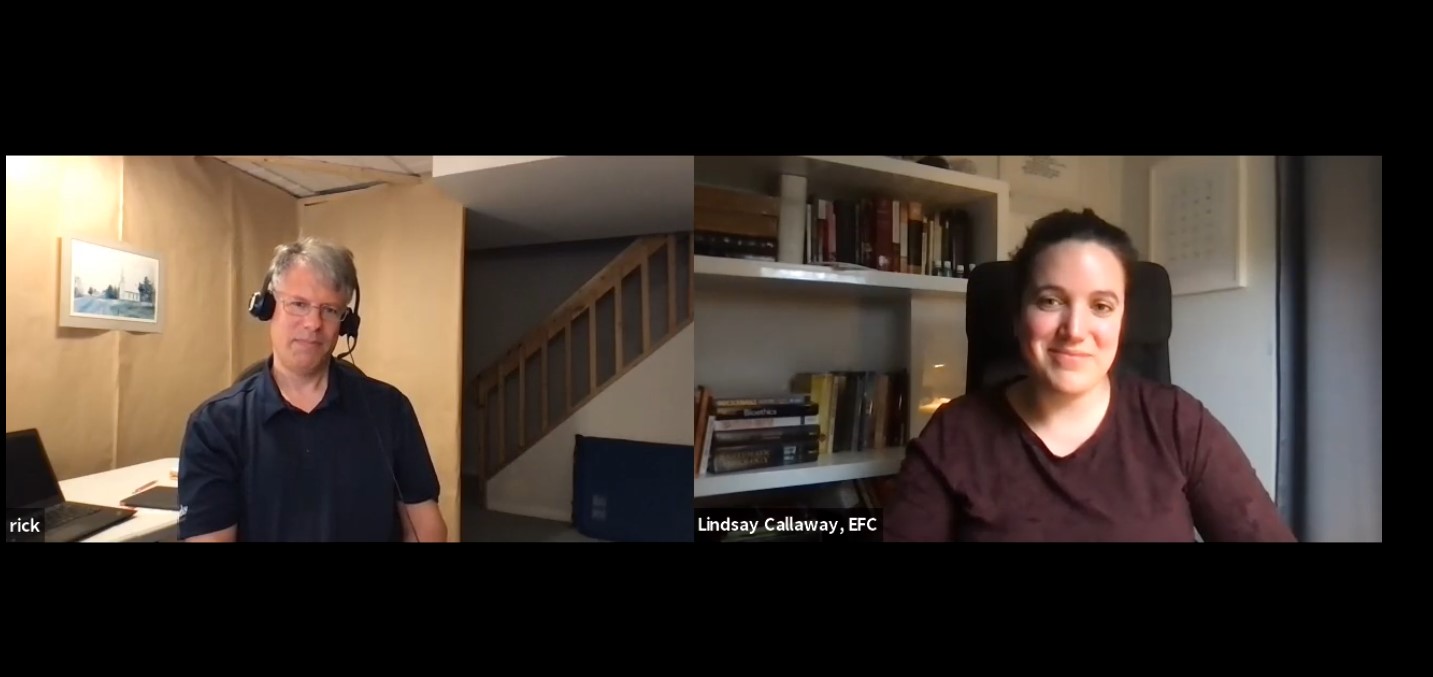Rick Heimstra and Lindsay Callaway are conducting research on Small Churches in Canada. The research was commissioned by Small Church Connections and Rick and Lindsay are researchers from the Evangelical Fellowship of Canada.
“In terms of what the research project is, we are doing a number of phases or steps to the project. First, we did a literature review looking at what’s sort of been written, what do we know about small churches, particularly small churches in Canada. And then we did a round of interviews with ministry experts. So these are people that would teach in seminaries, we included some denominational leaders, some pastors, some small church pastors as well. . . Then the next phase, we’re in the middle of doing 30 interviews with small church pastors from across Canada. And then finally, we will be conducting a national survey of small church pastors.”
“We’re looking at both rural and urban churches. And we realized that, you could further subdivide, urban into suburban and urban core and people have other different definitions. . . When we think of rural, we’re thinking of churches that might be in a rural setting, or in a small town, probably something like 10,000 or less, or that have a connection to to a rural population as their congregants. and there certainly are regional differences that that we find in terms of the experience of people. You know, we’ve interviewed small churches and in sort of the centre of Toronto, and their experience is very different than the churches that we’ve interviewed in rural Saskatchewan. And what we’re trying to look at is to faithfully describe both the similarities and the differences.”
“We noticed in our interviews, maybe three areas where small church pastors tended to communicate sort of a distrust or misunderstanding or a strained relationship. And that was, as Rick said, generally, with denominations but also with large churches, large churches, not always knowing how to relate to small churches, and also with educational institutions, feeling that maybe they’re not preparing pastors well for small church ministry.”
“The answer to the question of what makes a small church, often people might think that we would be talking about Sunday morning attendance. But often, it has to do with things like the feel of the congregation, that everybody’s family, that everyone knows everyone else, and that it that it’s close. Sometimes it has to do with what we call size dynamics. And size dynamics is just, you know, here are the people that you have available to do the ministry that’s in front of you. And the number of people that you have dictates how you can do it.”
“What people often say about what makes a small church successful, they’ll often talk about faithfulness. There’s kind of an unwritten, unspoken, congregational covenant. This is a covenant with each other about what is our small church about. Really what is success is sort of faithfulness to this common, shared, maybe unarticulated understanding, about what this congregation is in this community and our calling to this community in place. And and often, especially in rural churches, there is a very strong sense of a calling to a community and a place.”
“One of my favourite questions to ask pastors is to describe a workweek. And tell me what that looks like. It’s just how much that these pastors are cramming into their weeks is really extraordinary. And some of the things that you would not expect it. This isn’t a class that you took in seminary, having to fill out your CRA forms, or call the Internet and Phone provider and figure out the plan for the church. Some of them are setting up all the chairs for the Sunday morning, worship service, some of these things that you just, you don’t always expect to hear.”
“And I really think that if the pastor is flourishing, the congregation will. And so I would want to see pastors being invested in and poured into and taken care of, and I think the church will be blessed by extension. . . I think they’re the key, take care of them.”
“Pastors seem to sustain themselves in different ways, but most of them have found a community of support outside of the church. Whether that be a ministerial, like, what, what you guys are experiencing. Sometimes it’s mentorship. And I’ve seen different models, sometimes people will go and pursue a mentor on their own. Sometimes that’s something that’s facilitated by the denomination.”
“When we talked with a lot of denominational leaders, some of them expressed frustration at the unwillingness of small churches to change sometimes. And I think the part of this goes back to the way that change works in a small church versus a large church. In a large church, congregations will generally give the leadership of the church over to the pastor or a board. In a small church, the leadership of the church is kind of owned by consensus, you know, every everybody has a say in it. And that change has to take place slowly. And, and one of the things that I don’t think that many denominational leaders understand very well is that the pastor actually does not have the authority to come in and lead until the people feel that the pastor is one of them, and is invested in the congregational covenant in the same way that they are.”

